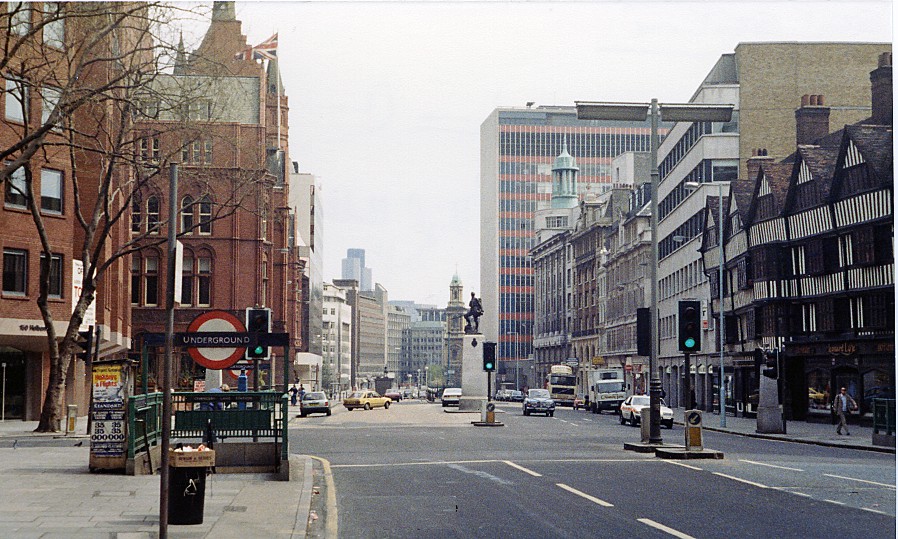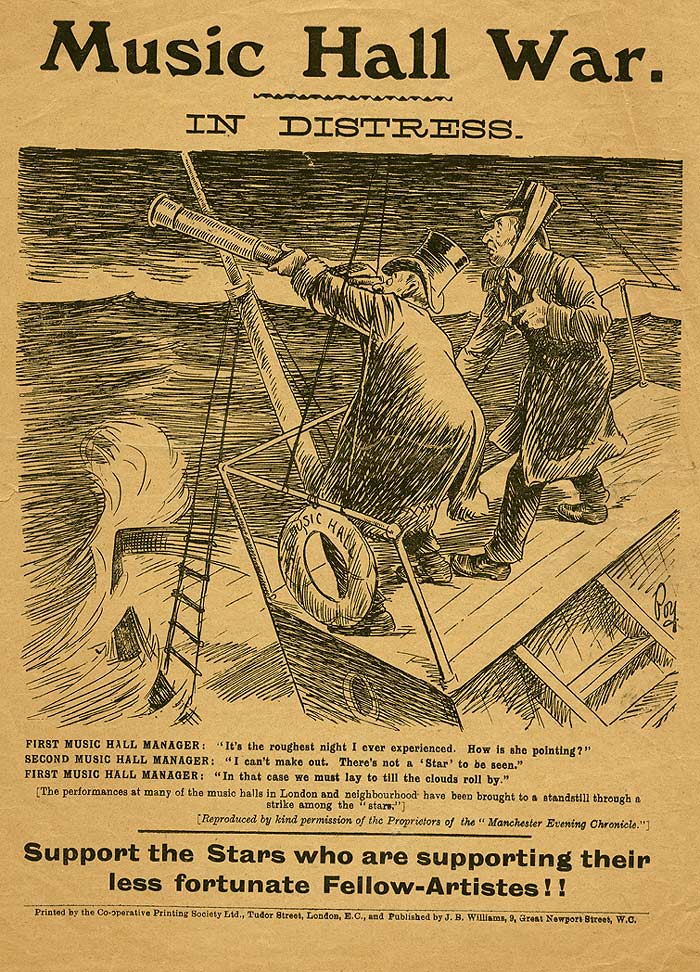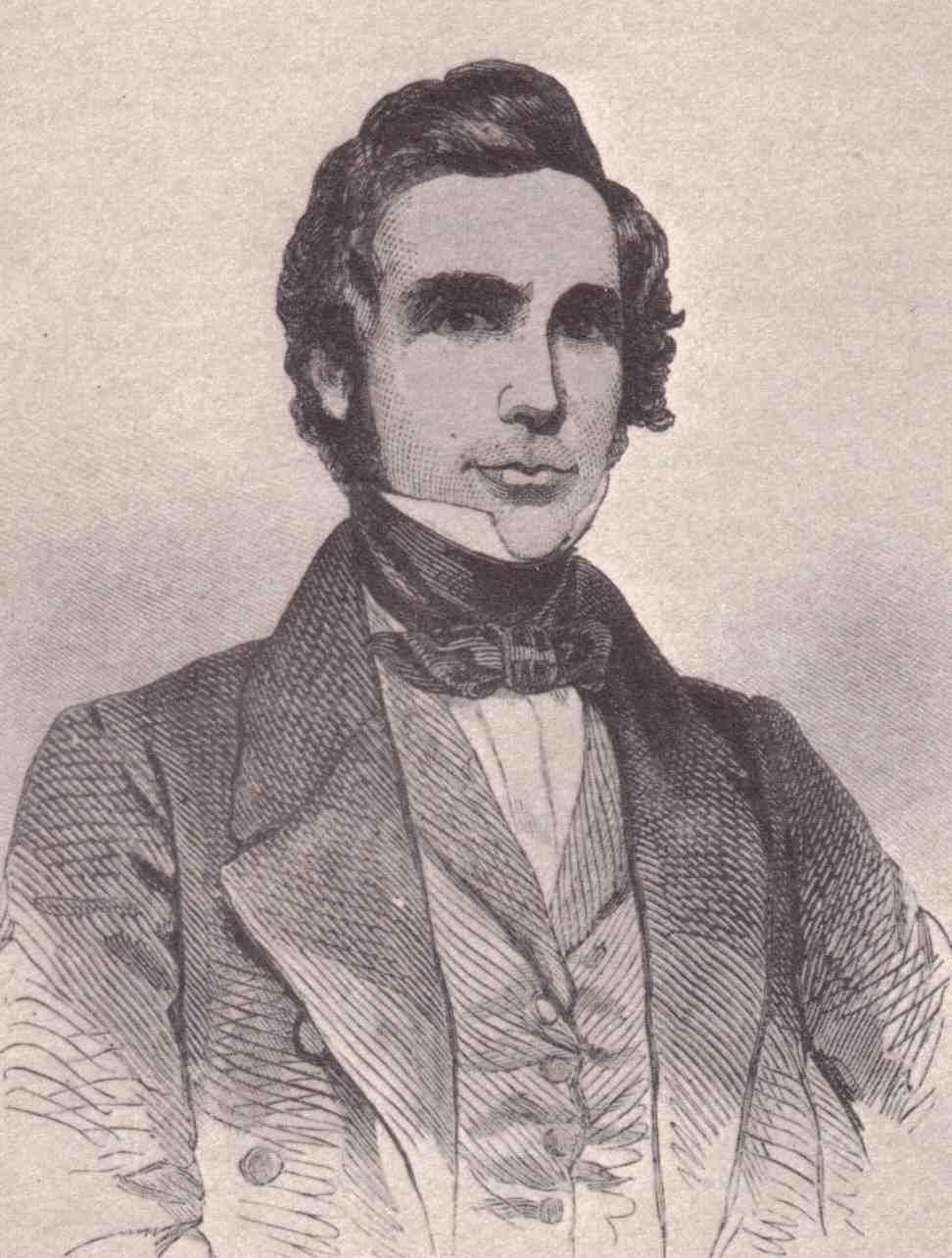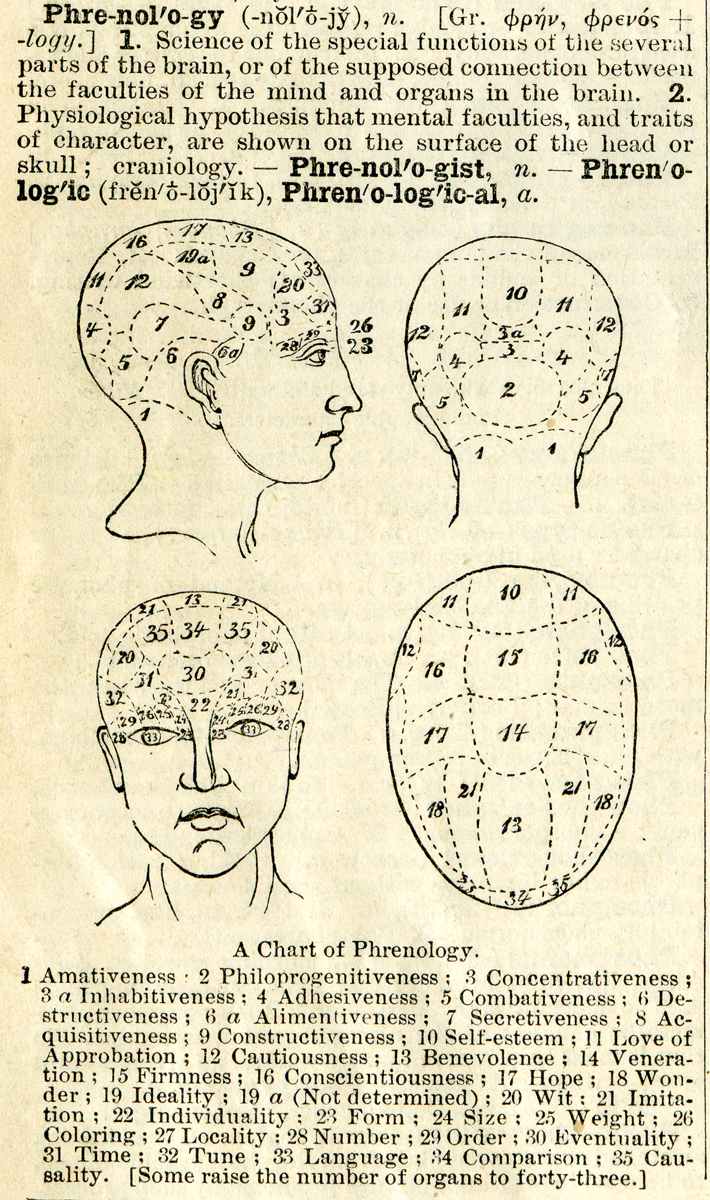|
National Hall, Holborn
The National Hall, Holborn was a building in High Holborn, London, owned in the 1840s by the National Association for Promoting the Political and Social Improvement of the People. The lease of 242A High Holborn was taken by the National Association in January 1842, for the "Hall of the National Association", which was fitted out in the second half of 1842. The National Association folded in 1849, and the Hall was transferred to a group of trustees. It retained the name until it was converted, with other properties on the same site, into Weston's Music Hall in 1857. Functions The National Hall was opened in July 1842, and was created from Gate Street Chapel. It had a number of educational and social functions, including meetings and lectures. There was a school on Sundays, run by William Lovett, and from 1848 he supervised a day school there. William Ellis taught from 1850. The Hall's capacity was 2,000, and classes were held in dancing and phrenology. James Watson was appointe ... [...More Info...] [...Related Items...] OR: [Wikipedia] [Google] [Baidu] |
High Holborn
High Holborn ( ) is a street in Holborn and Farringdon Without, Central London, which forms a part of the A40 route from London to Fishguard. It starts in the west at the eastern end of St Giles High Street and runs past the Kingsway and Southampton Row, becoming Holborn at its eastern junction with Gray's Inn Road. The western stretch as far as Drury Lane, was formerly known as Broad Street. On High Holborn, traffic (including cycles and buses) flows one-way westbound from its junction with Drake Street to its western end, and flows both ways for the remainder. The nearest London Underground stations are Tottenham Court Road, Holborn, and Chancery Lane, all on the Central line which runs beneath High Holborn. Landmarks along High Holborn include the Cittie of Yorke, at no. 22, and the Embassy of Cuba, at no. 167. The street was a "Feature site" for introduction of the Camden bench. High Holborn is the highest point in the City of London. At 22 metres (72 feet) above s ... [...More Info...] [...Related Items...] OR: [Wikipedia] [Google] [Baidu] |
National Association For Promoting The Political And Social Improvement Of The People
The National Association for Promoting the Political and Social Improvement of the People was founded, in Britain, in 1841 by William Lovett in order to put his form of "educational chartism" into practice. This was denounced by the ''Northern Star'' as a "New Move", resulting in its members becoming isolated from those involved with the National Chartism Association. The manifesto of the National Association for Promoting the Political and Social Improvement of the People was drafted by William Lovett, John Collins (of Birmingham, England), and Henry Vincent. Several people who had been prominent in London working-class radicalism and Chartism joined the National Association, including Henry Vincent Henry Vincent (10 May 1813 – 29 December 1878) was active in the formation of early Working Men's Associations in Britain, a popular Chartist leader, brilliant and gifted public orator, prospective but ultimately unsuccessful Victorian membe ..., James Watson, Richard Moore, ... [...More Info...] [...Related Items...] OR: [Wikipedia] [Google] [Baidu] |
Weston's Music Hall
Weston's Music Hall was a music hall and theatre that opened on 16 November 1857 at 242-245 High Holborn in London, England. In 1906, the theatre became known as the Holborn Empire. History Early years The theatre was constructed on the site of the ''Six Cans and Punch Bowl Tavern''. Edward Weston, nephew of the previous licensee of the pub, bought the former Holborn National Schoolrooms immediately behind the pub and rebuilt it as a music hall in six months. This purpose built hall was his response to the success of Charles Morton's Canterbury Music Hall in Lambeth. In 1861, Morton struck back by opening the Oxford Music Hall, nearby in Oxford Street; a development Weston opposed on the grounds there were already too many music halls in the area.Weston's Music Hall, at Arthur Lloyd music hall history 31 Mar ... [...More Info...] [...Related Items...] OR: [Wikipedia] [Google] [Baidu] |
William Lovett
William Lovett (8 May 1800 – 8 August 1877) was a British activist and leader of the Chartism, Chartist political movement. He was one of the leading London-based artisan Radicals (UK), radicals of his generation. A proponent of the idea that political rights could be garnered through political pressure and non-violent agitation, Lovett retired from more overt forms of political activity after a year of imprisonment on the political charge of seditious libel in 1839–1840. He subsequently devoted himself to the National Association for Promoting the Political and Social Improvement of the People, seeking to improve the lives of the poor workers and their children by means of a Chartist educational programme put into practice. Biography Early activism Born in the Cornwall, Cornish town of Newlyn in 1800, Lovett moved to London as a young man seeking work as a cabinet maker. He was self-educated, became a member of the Cabinetmakers Society, and later its President. He rose t ... [...More Info...] [...Related Items...] OR: [Wikipedia] [Google] [Baidu] |
William Ellis (economist)
William Ellis (1800–1881) was an English businessman, writer on economics, and educational thinker. Life Ellis was born in January 1800. His father, Andrew Ellis Ellis, an underwriter at Lloyd's of London, was the descendant of a French refugee family named De Vezian, and took the name Ellis shortly after the son's birth. His mother was Maria Sophia Fazio, of Italian extraction. He was educated at a school in Bromley, and at the age of fourteen became his father's assistant at Lloyd's. In 1824, on the foundation of the Indemnity Marine Insurance Company, he became assistant-underwriter. In 1827 he was appointed chief manager of the company, and held that position for many years, until on his retirement he was elected director. Economic interests Ellis was interested in economic speculations, and joined the "Utilitarian Society" formed by John Stuart Mill. This was a club with at most ten members, and lasting only from the winter of 1822–3 to 1826. His fellow-members included ... [...More Info...] [...Related Items...] OR: [Wikipedia] [Google] [Baidu] |
Phrenology
Phrenology () is a pseudoscience which involves the measurement of bumps on the skull to predict mental traits.Wihe, J. V. (2002). "Science and Pseudoscience: A Primer in Critical Thinking." In ''Encyclopedia of Pseudoscience'', pp. 195–203. California: Skeptics Society.Hines, T. (2002). ''Pseudoscience and the Paranormal''. New York: Prometheus Books. p. 200 It is based on the concept that the brain is the organ of the mind, and that certain brain areas have localized, specific functions or modules. It was said that the brain was composed of different muscles, so those that were used more often were bigger, resulting in the different skull shapes. This led to the reasoning behind why everyone had bumps on the skull in different locations. The brain "muscles" not being used as frequently remained small and were therefore not present on the exterior of the skull. Although both of those ideas have a basis in reality, phrenology generalized beyond empirical knowledge in a way that ... [...More Info...] [...Related Items...] OR: [Wikipedia] [Google] [Baidu] |
James Watson (radical)
James Watson (21 September 1799 – 29 November 1874) was an English radical publisher, activist and Chartist. His colleagues in political activity included Henry Hetherington, William Lovett, Thomas Wakley, Thomas Slingsby Duncombe, and Thomas Cooper. Early life He was born at Malton, North Yorkshire, on 21 September 1799. His father died when he was only a year old. His mother, who was a Sunday school teacher, taught him to read and write. Around the year of 1811, she returned to domestic service in the household of a clergyman, who had paid for James's schooling and tuitions for a brief period. He had worked there as under-gardener, in the stables and as house-servant, and he read widely. From about 1817 Watson was with his mother in Leeds, where he became a warehouseman. In London Watson was converted to freethought and radicalism by public readings from William Cobbett and Richard Carlile. He spread literature and helped with a subscription on behalf of Carlile. Carlile wa ... [...More Info...] [...Related Items...] OR: [Wikipedia] [Google] [Baidu] |
Thomas Cooper (poet)
Thomas Cooper (20 March 1805 – 15 July 1892) was an English poet and a leading Chartist. His prison rhyme the ''Purgatory of Suicides'' (1845) runs to 944 stanzas. He also wrote novels and in later life religious texts. He was self-educated and worked as a shoemaker, then a preacher, a schoolmaster and a journalist, before taking up Chartism in 1840. He was seen as a passionate, determined and fiery man. Early years Cooper was born in Leicester, the son of a working dyer. After his father's death, his mother began business as a dyer and fancy box-maker at Gainsborough, Lincolnshire, and young Cooper was apprenticed to a shoemaker. In spite of hardships and difficulties, he managed to educate himself, and at the age of 23, having been a shoemaker in Gainsborough, managed to open a school there in 1827. He had moved to Lincoln by 1834 and married Susannah Chaloner, a cousin of George Boole in that year. His wife died in 1880. He joined the Lincoln Mechanics' Institute in 1834 ... [...More Info...] [...Related Items...] OR: [Wikipedia] [Google] [Baidu] |
Edward William Elton
Edward William Elton (August 1794 – 20 July 1843) was an English actor. Biography Elton was born in London, in the parish of Lambeth, in August 1794, and was trained for the law in the office of a solicitor named Springhall in Verulam Buildings, Gray's Inn. His father, whose name was Elt, was a schoolmaster in the neighbourhood of Tottenham Court Road, and got up plays among his scholars. In these, at the Sans Souci Theatre in Leicester Place, and subsequently at Pym's private theatre, Wilson Street, Gray's Inn Lane, Elton acted, as a youth. After joining a strolling company, he appeared, in 1823, as utility actor at the Olympic, playing in ''A Fish out of Water,'' where he made the acquaintance of Tyrone Power. At Christmas he went to the Liverpool Amphitheatre, where the following year, after a summer engagement at Birmingham, under Alfred Bunn, he played Napoleon in the spectacle of the ''Battle of Waterloo''. He then, at the Theatre Royal, Liverpool, played Cominius in ... [...More Info...] [...Related Items...] OR: [Wikipedia] [Google] [Baidu] |
William Johnson Fox
William Johnson Fox (1 March 1786 – 3 June 1864) was an English Unitarian minister, politician, and political orator. Early life Fox was born at Uggeshall Farm, Wrentham, near Southwold, Suffolk on 1 March 1786. His parents were strict Calvinists. When he was still young, his father quit farming. After time at a chapel school, Fox became a weaver's boy, an errand-boy, and in 1799, a bank clerk. An autodidact, he entered prize competitions. From September 1806 Fox trained for the Independent ministry, at Homerton College. His tutor there was John Pye Smith, the Congregational theologian. Early in 1810 he took charge of a congregation at Fareham in Hampshire. Failing to make a small seceding congregation there viable, he left within two years to become minister of the Unitarian chapel at Chichester. South Place Chapel circle In 1817 Fox moved to London, becoming minister of Parliament Court Chapel. In 1824 he moved the congregation to South Place Chapel, in Finsbury on the e ... [...More Info...] [...Related Items...] OR: [Wikipedia] [Google] [Baidu] |
John Humffreys Parry
John Humffreys Parry (24 January 1816 – 10 January 1880) was a British barrister, who became serjeant-at-law. Early life The son of John Humffreys Parry the antiquarian (1786–1825), he was born in London on 24 January 1816. He received a commercial education at the Philological School, Marylebone, and spent a short time in a merchant's office in London; but then took a post in the printed-book department in the British Museum. He attended lectures at the Aldersgate Institution and studied for the bar. Legal career Parry was called to the bar in June 1843 at the Middle Temple. On the home circuit he built up a good criminal business, principally at the Old Bailey and the Middlesex sessions. Appointment as a serjeant-at-law, in June 1856, led him to success also in the civil courts. He was also largely employed in compensation cases, especially for the London, Brighton, and South Coast Railway. Parry obtained a patent of precedence in 1864 from Lord Westbury, and then led the ... [...More Info...] [...Related Items...] OR: [Wikipedia] [Google] [Baidu] |
Philip William Perfitt
Philip, also Phillip, is a male given name, derived from the Greek (''Philippos'', lit. "horse-loving" or "fond of horses"), from a compound of (''philos'', "dear", "loved", "loving") and (''hippos'', "horse"). Prominent Philips who popularized the name include kings of Macedonia and one of the apostles of early Christianity. ''Philip'' has many alternative spellings. One derivation often used as a surname is Phillips. It was also found during ancient Greek times with two Ps as Philippides and Philippos. It has many diminutive (or even hypocoristic) forms including Phil, Philly, Lip, Pip, Pep or Peps. There are also feminine forms such as Philippine and Philippa. Antiquity Kings of Macedon * Philip I of Macedon * Philip II of Macedon, father of Alexander the Great * Philip III of Macedon, half-brother of Alexander the Great * Philip IV of Macedon * Philip V of Macedon New Testament * Philip the Apostle * Philip the Evangelist Others * Philippus of Croton ... [...More Info...] [...Related Items...] OR: [Wikipedia] [Google] [Baidu] |





